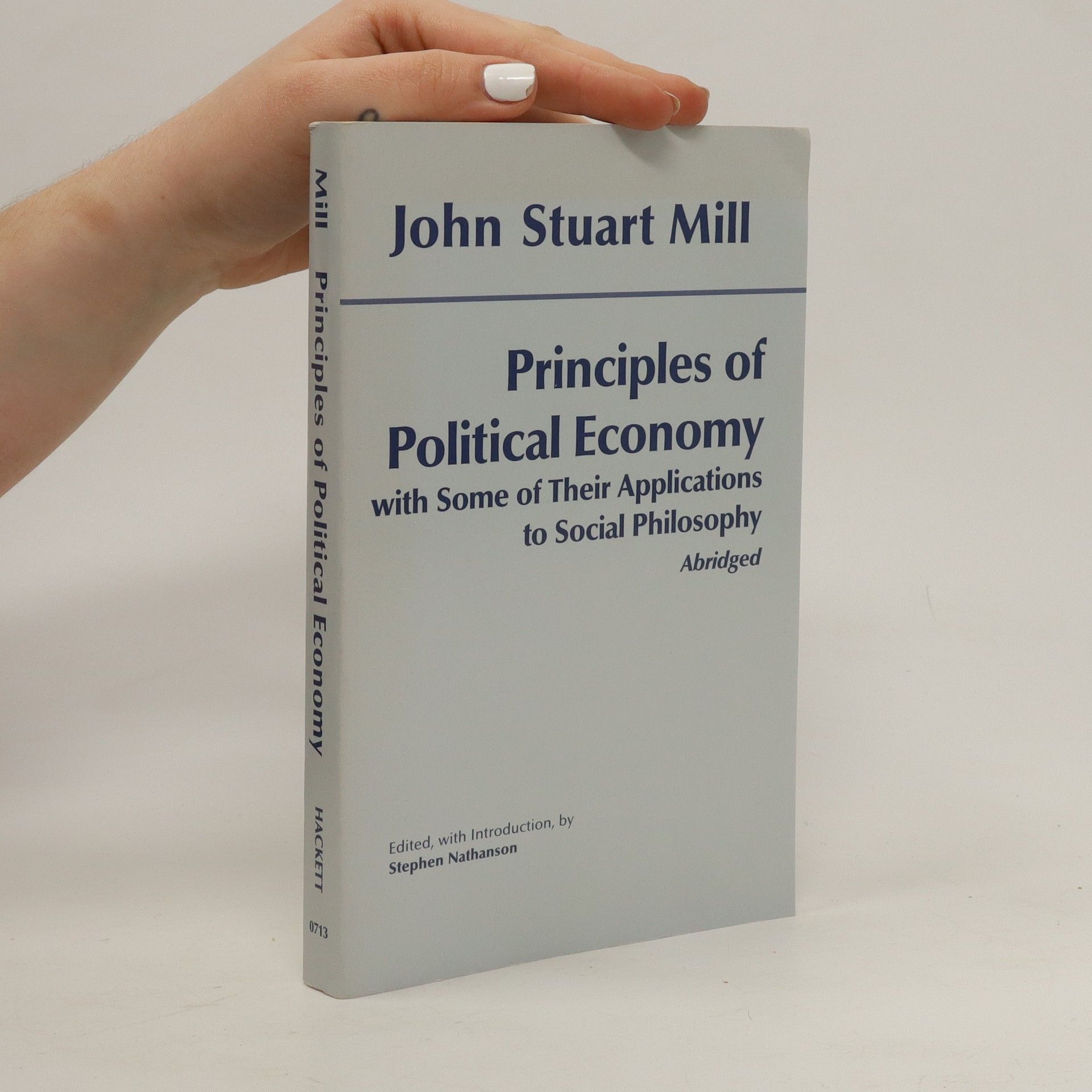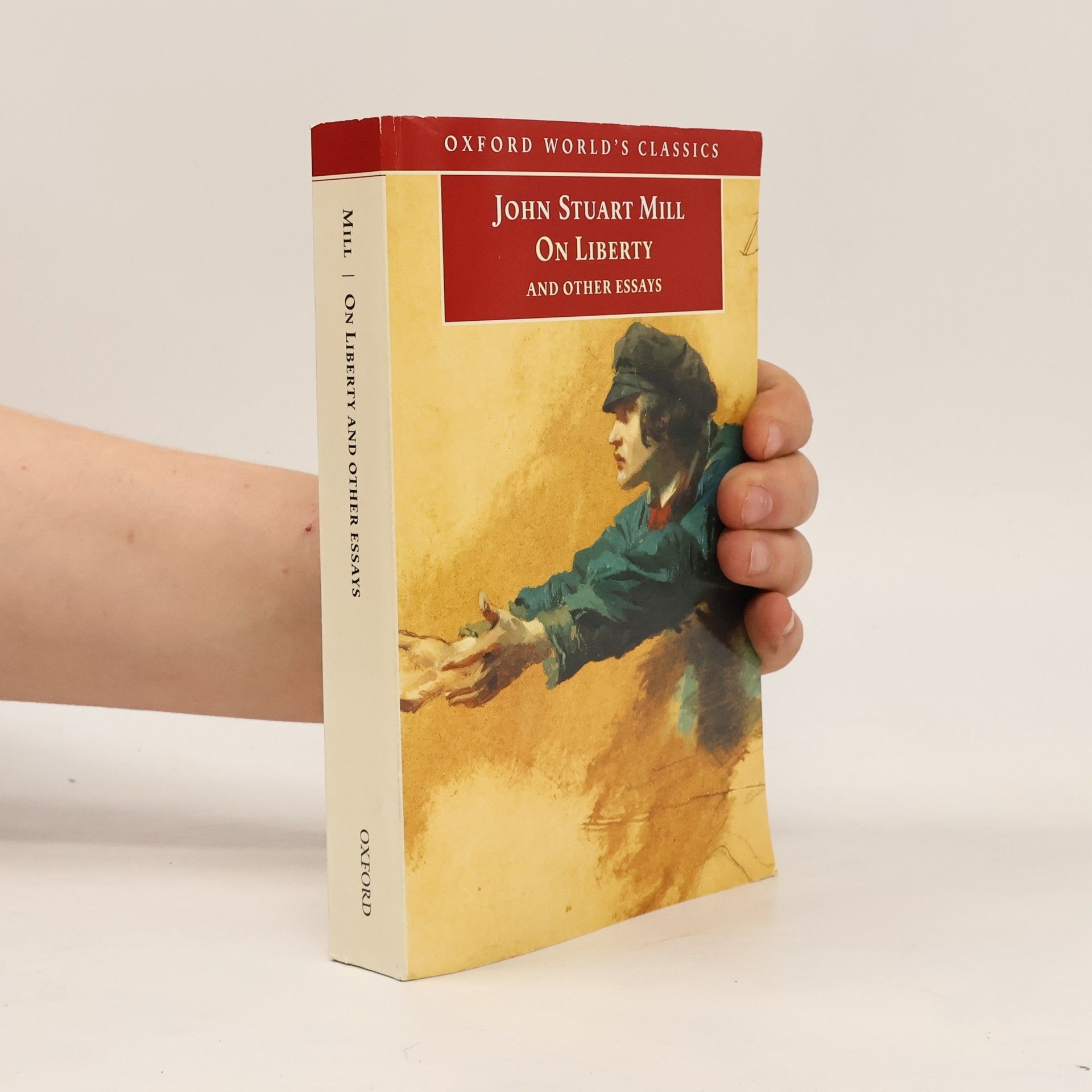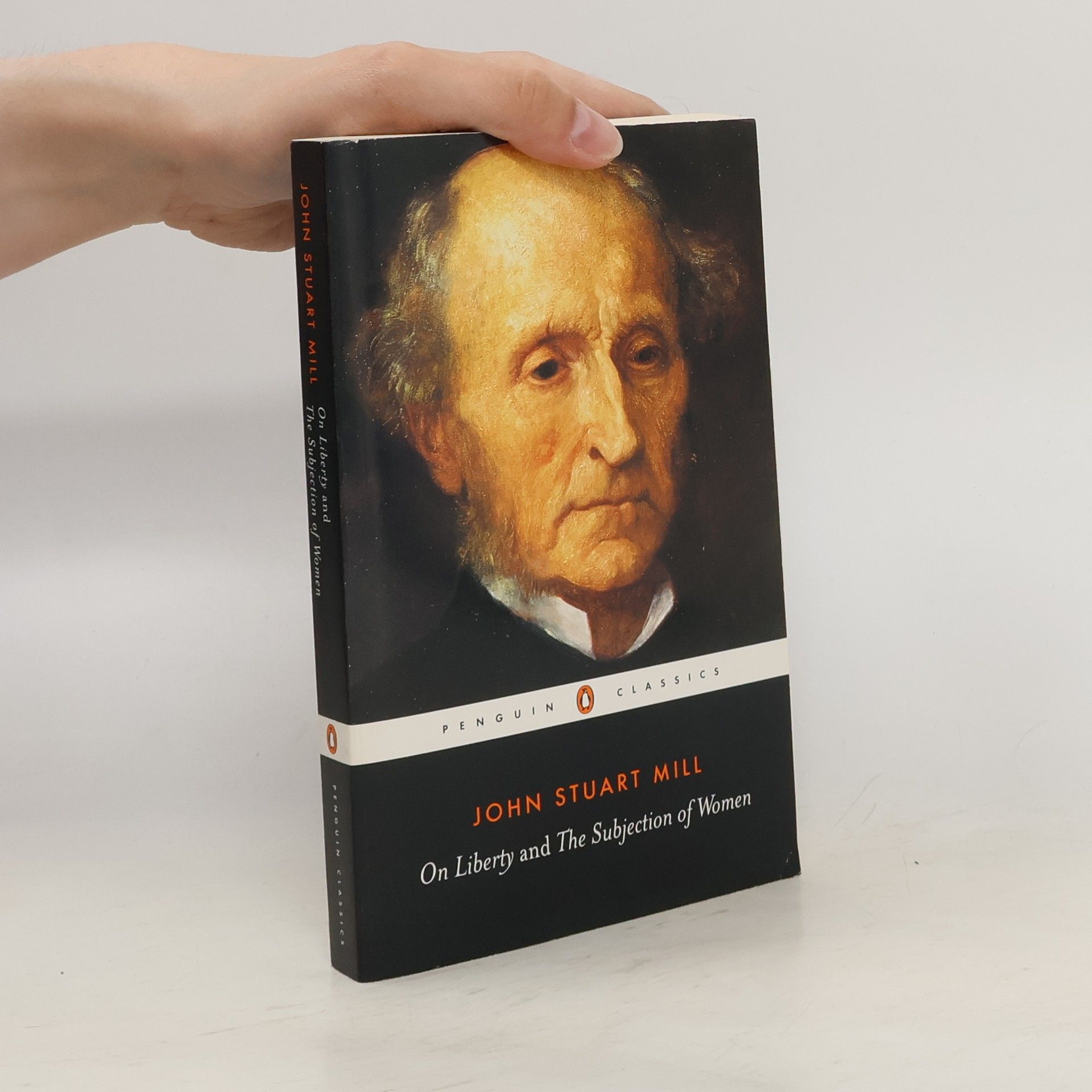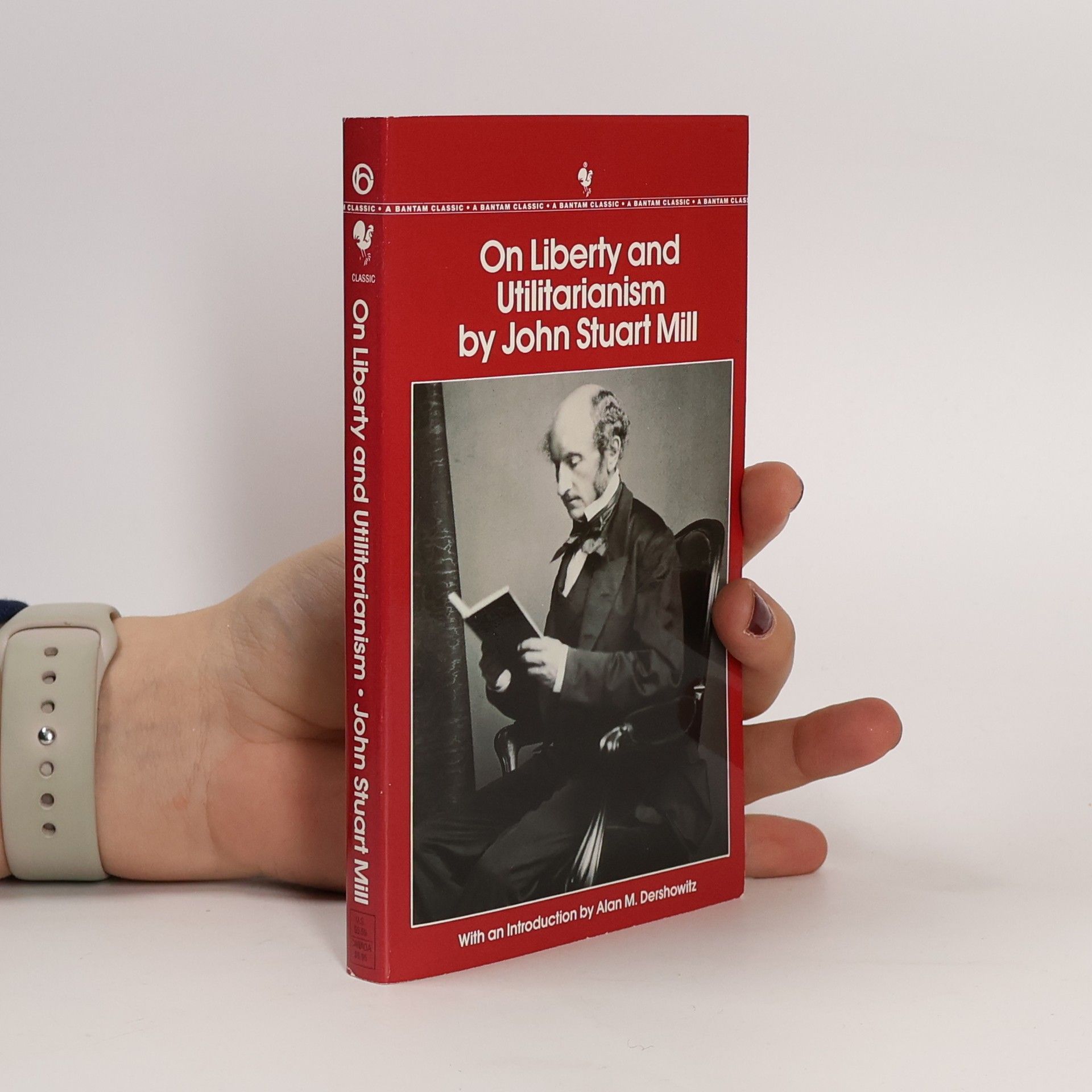British economist and ethical theorist, John Stuart Mill (1806–73), recounts his rigorous tutelage under a domineering father, his mental health crisis at age twenty, and his struggle to regain joy amid self-reflection.
John Stuart Mill Books
John Stuart Mill was an influential 19th-century liberal thinker, renowned for his work in philosophy and political economy. He was a key exponent of utilitarianism, an ethical theory he developed beyond Jeremy Bentham's original conception. Mill's approach to utilitarianism was distinguished by its emphasis on the quality of pleasures and individual liberty. His ideas profoundly shaped the liberal tradition and continue to resonate in contemporary ethical and political discourse.







On Liberty
- 192 pages
- 7 hours of reading
Explores the risks and responsibilities of liberty. Examining the tyranny that can come both from government and from the herd-like opinion of the majority, this title proposes a freedom to think, unite, and pursue our pleasures as the most important freedoms, as long as we cause no harm to others.
Socialism
- 92 pages
- 4 hours of reading
Exploring the tension between social order and individual liberty, this influential 19th-century work by John Stuart Mill delves into political and economic ideas through the lens of social theory. It significantly shaped political discourse globally, offering a critical analysis that remains relevant in discussions of socialism and its implications for society.
Presents the text of four essays by nineteenth-century English philosopher and economist John Stuart Mill, and includes textual and explanatory notes, chronology, and introduction.
Principles of political economy : with some of their applications to social philosophy
- 309 pages
- 11 hours of reading
Stephen Nathanson's clear-sighted abridgment of Principles of Political Economy, Mill's first major work in moral and political philosophy, provides a challenging, sometimes surprising account of Mill's views on many important topics: socialism, population, the status of women, the cultural bases of economic productivity, the causes and possible cures of poverty, the nature of property rights, taxation, and the legitimate functions of government. Nathanson cuts through the dated and less relevant sections of this large work and includes significant material omitted in other editions, making it possible to see the connections between the views Mill expressed in Principles of Political Economy and the ideas he defended in his later works, particularly On Liberty. Indeed, studying Principles of Political Economy, Nathanson argues in his general Introduction, can help to resolve the apparent contradiction between Mill's views in On Liberty and those in Utilitarianism, making it a key text for understanding Mill’s philosophy as a whole.
The Subjection of Women
- 148 pages
- 6 hours of reading
John Stuart Mill, recognized for his contributions to political philosophy, ethics, and economics, also emerged as a pioneering feminist thinker. His insights and arguments advocate for women’s rights and equality, showcasing a progressive perspective for his time. This aspect of Mill's thought highlights his commitment to social justice and the importance of gender equality in the broader context of human rights and ethical considerations.
Presents two works by the political and social radical English-speaking philosopher. One is regarded as a sacred text of liberalism. The other stresses the importance of equality for the sexes. These works provide a testimony to the hopes and anxieties of mid-Victorian England, and offer a consideration of what it truly means to be free.
Together these two essays mark the philosophic cornerstone of democratic morality and represent a thought-provoking search for the true balance between the rights of the individual and the power of the state. Thoroughly schooled in the principles of the utilitarian movement founded by Jeremy Bentham, John Stuart Mill nevertheless brings his own unique intellectual energy to issues such as individual freedom, equality, authority, happiness, justice, and virtue. On Liberty is Mill’s famous examination of the nature of individuality and its crucial role in any social system that expects to remain creative and vital. Utilitarianism brilliantly expounds a pragmatic ethic based on one controversial proposition: actions are right only if they promote the common good and wrong if they do not. While much of Mill’s thinking was eventually adopted by socialists, it is in today’s democratic societies—with their troubling issues of crime, freedom of speech, and the boundaries of personal liberty—that his work resounds most powerfully.
Essays on Sex Equality
- 242 pages
- 9 hours of reading
This volume brings together for the first time all the writings of John Stuart Mill & Harriet Taylor Mill on equality between the sexes, including John Stuart Mill's The Subjection of Women, a classic in the history of the women's rights movement since its publication 100 years ago. Also contained in this volume is a major interpretative essay by Alice S. Rossi on Mill & Harriet Taylor which describes and analyzes their long personal & intellectual relationship.
Considerations on Representative Government
- 192 pages
- 7 hours of reading
Exploring the principles of democracy, John Stuart Mill examines the effectiveness of representative government in promoting individual liberty and social progress. He discusses the responsibilities of both representatives and constituents, emphasizing the importance of public participation and informed decision-making. Mill critiques various forms of governance and advocates for a system that balances majority rule with the protection of minority rights, ultimately aiming for a society that fosters both freedom and responsibility among its citizens.


